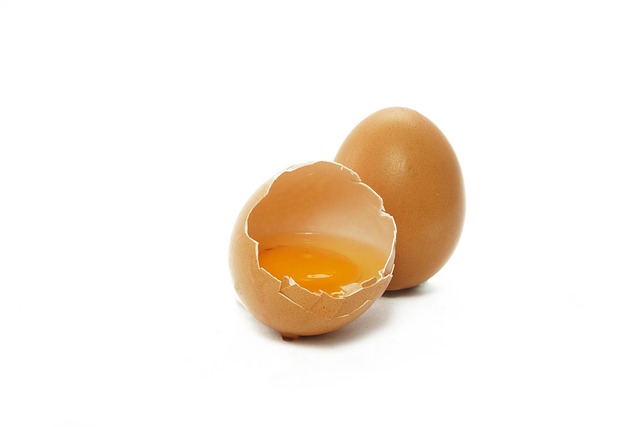Fertility treatment with donor eggs offers a solution for couples facing conception challenges. It involves screening, egg stimulation, harvesting, fertilization, and embryo transfer. A balanced lifestyle is crucial pre-pregnancy, focusing on nutrition, exercise, stress management, and sleep. Post-birth care emphasizes mother and child well-being through proper nutrition, rest, support, and regular check-ups.
“Considering a fertility treatment with donor eggs? Navigating this path can be empowering, offering hope for healthy pregnancy. This comprehensive guide delves into the intricacies of ensuring optimal maternal health through egg donation. From understanding underlying fertility challenges and the donation process to lifestyle adjustments pre-pregnancy and post-birth care, each step is crucial for a successful journey. Embrace this symphony of support, fostering motherhood with confidence.”
Understanding Fertility Challenges and Donor Eggs
Many couples face challenges in conceiving, often due to various fertility issues. Infertility can stem from a range of factors, including age, health conditions, and developmental abnormalities. For some, the solution lies in fertility treatment with donor eggs, a procedure that has revolutionized parenting for countless individuals. This approach is particularly beneficial when a woman’s own eggs are not viable due to quality or quantity concerns.
Donor eggs offer a fresh perspective on building families, providing a healthy alternative for couples struggling with infertility. It involves the use of high-quality eggs from a donor, typically a young, healthy female volunteer, who undergoes controlled stimulation and retrieval. This process ensures the availability of excellent genetic material, increasing the chances of successful fertilization and pregnancy.
The Process of Donor Egg Donation
The process of donor egg donation is a carefully orchestrated journey aimed at achieving a healthy pregnancy. It begins with a thorough screening and evaluation of both the donor and the recipient to ensure compatibility and minimize risks. Potential donors undergo medical examinations, blood tests, and psychological assessments to determine their eligibility. Once matched with a suitable recipient, the donor receives medication to stimulate the production of multiple eggs, a process known as in vitro maturation (IVM). These mature eggs are then carefully harvested under ultrasound guidance, ensuring minimal discomfort.
The fertilized eggs, created through insemination or intracytoplasmic sperm injection (ICSI), are cultured for several days in a laboratory setting. This meticulous process allows for the selection of the strongest and healthiest embryos. These embryos are then transferred to the recipient’s uterus, where they have the potential to implant and grow. The entire procedure is guided by experienced medical professionals, ensuring a safe and successful fertility treatment with donor eggs.
Preparing for Pregnancy: Lifestyle Considerations
Preparing for pregnancy, especially through fertility treatment with donor eggs, involves adopting a holistic approach that encompasses both physical and mental well-being. A healthy lifestyle is crucial to supporting the successful implementation of the donor eggs and ensuring a smooth pregnancy journey. This includes maintaining a balanced diet rich in essential nutrients, such as folic acid, which plays a vital role in preventing neural tube defects. Regular exercise, tailored to individual needs and approved by healthcare providers, can help regulate hormones and reduce stress levels, contributing to overall fertility health.
Additionally, managing stress through relaxation techniques like yoga or meditation is beneficial. Avoiding harmful substances like alcohol and smoking is paramount, as they can negatively impact fertility and the developing fetus. Adequate sleep is another critical component, allowing the body to recover and prepare for the rigors of pregnancy. By prioritizing these lifestyle considerations, individuals embarking on their fertility journey with donor eggs can create an optimal environment for a healthy pregnancy.
Supporting Motherhood: Post-Birth Care and Bonding
After a successful pregnancy through fertility treatment with donor eggs, post-birth care becomes crucial in supporting both mother and child. The initial weeks and months are vital for establishing a strong bond between them. This includes ensuring proper nutrition, rest, and emotional support for the new mother. Regular check-ups with healthcare providers help monitor the health of the mother and baby, addressing any concerns promptly.
Additionally, fostering a nurturing environment at home encourages healthy development and bonding. This involves creating routines, providing comfort, and offering opportunities for physical contact and interaction. Remember, effective post-birth care strengthens the maternal bond, contributing to the overall well-being of both mother and child.
Ensuring a healthy pregnancy through fertility treatment with donor eggs is achievable with the right understanding and preparation. By navigating the process, from recognizing fertility challenges to adopting lifestyle changes before and after birth, prospective parents can foster a strong foundation for motherhood. This holistic approach, combined with post-birth care and bonding strategies, empowers individuals to embrace the joys of parenthood successfully.
